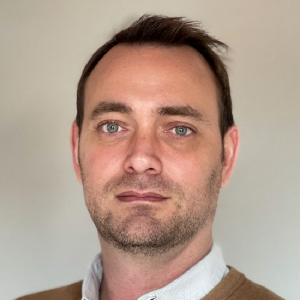Title : From Sand To Sky The story of the first Etihad Passenger flight using Biojet fuel 100% produced and refined in the UAE
Abstract:
The 15th of January 2019, Etihad Airways flew the first commercial passenger flight from Abu Dhabi to Amsterdam partially fueled with a sustainable biojet-fuel produced locally from plants grown in the desert of the United Arab Emirates, and refined by the Abu Dhabi National Oil Company (ADNOC) using the UOP Ecofining process. Liquid biofuels have the potential to meet the aviation industry’s needs, decreasing carbon emissions, reducing the dependency on conventional fuels, as well as providing a more attractive market for biofuel producers compared to current ground transportation markets. Aviation fuel markets are less likely to be vulnerable to competition from nonliquid fuels (e.g., battery-electric or fuel-cell hydrogen-powered vehicles), because of the substantial greater energy density of liquid fuels and the physical constraints of aircraft design and performance. Some of the liquid biofuels that have been approved by ASTM for aviation use include fuels based on Fischer-Tropsch (FT) synthesis and hydroprocessed esters and fatty acids (HEFA). The Seawater Energy and Agriculture System (SEAS) pilot-plant implementation was inaugurated in 2016 by the Sustainable Bioenergy Research Consortium (SBRC), whose members are Khalifa University of Science and Technology (KU), ADNOC, Etihad Airways, Boeing, Safran, GE and BAUER Resources. At the heart of the project is the 2 ha SEAS farm located on the KU Masdar campus in Abu Dhabi. The SEAS couples aquaculture ponds, that produce fish and shrimp, with fields of Salicornia begelovii and wetlands of Avicennia Marina (Grey mangrove), both halophyte plants, used as a natural filter to clean the waste water of the ponds. As such, the biomass is grown using only seawater that is produced as a waste from the aquaculture ponds, reducing drastically the cost of the feedstock for biofuel production because of other income streams, and making the overall economics highly attractive. Salicornia seeds are rich in vegetable oil, containing triglycerides having fatty acids with mostly 18 carbons. After pressing the seeds, the vegetable oil has been pretreated and refined at the ADNOC Refining Research Center Division (RCD). The pretreatment phase, supported by the Abu Dhabi Vegetable Oil Company (ADVOC), was aimed at removing phosphorous and other contaminants that may harm the catalyst during the downstream conversion process. To convert the clean vegetable oil to biojet-fuel, oxygen needs to be removed completely and the carbon chains must be shortened to C9-C15, within the jet fuel range. In order to do so, UOP has provided technical support to set up their 2-step Ecofining process in one of ADNOC RCD’s pilot-plant. The first step, hydrodeoxygenation, removes oxygen as water and produces an oil with high green diesel yields (>C15). To increase the yields of the biojet fuel range, the deoxygenated product is then cracked and isomerized in a second reactor. Following a distillation, the biojet fuel cut has been certified through the “standard specification for aviation turbine fuel containing synthesized hydrocarbons” ASTM D 7566, before being blended with conventional jet fuel and used on an Etihad Airways Boeing 787. The SEAS, as an integrated food and energy system paves the way to more sustainable and economically viable biofuel production using non arable lands, non-drinkable water and, at the same time, replying to food security issues of countries with large deserts or arid regions, such as UAE. The presentation will go through the main steps of the whole project, showing its sustainability and economic viability and highlighting the strong collaboration between the different partners.


